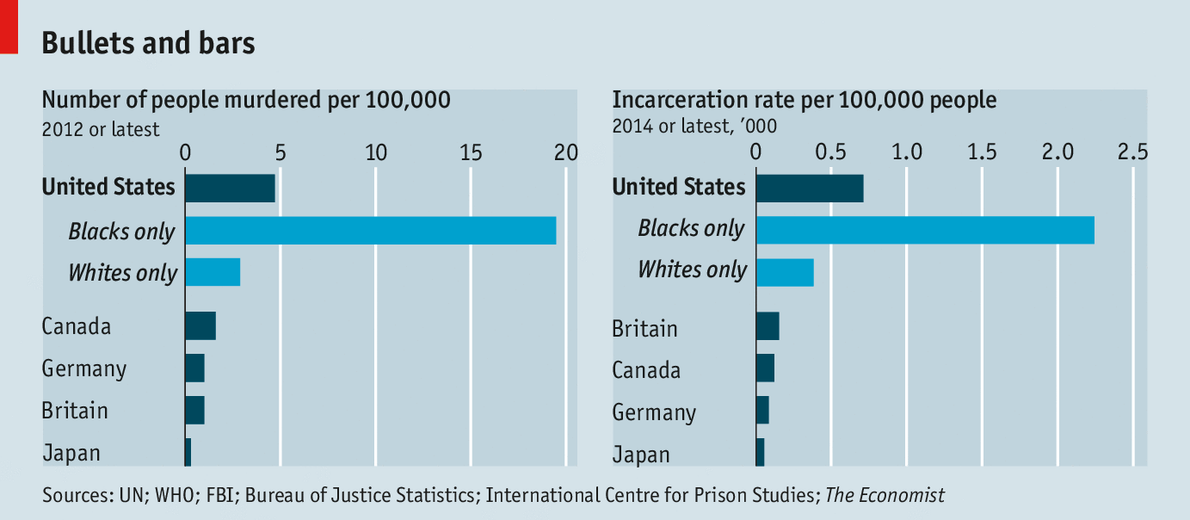 |
| Source: The Economist |
Murder is arguably the worst crime, and the murder rate in the USA is higher than for the general population in comparable countries; it is much higher for U.S. blacks than for U.S. whites.
Why should this be so? Clearly we in the USA are a violent people, and clearly we have policies that put a lot of people in jail. (It might be that putting a lot of people in jail and keeping them there a long time does not work in reducing violent behavior.) I believe that there is still a large amount of racism in the USA, and that as a result blacks are likely to be sequestered in black neighborhoods; also as a result, blacks are likely to be less educated and have fewer opportunities in life, leading to high crime rates in black communities where the victims are likely to be black. These observations seem so obvious that I am surprised that they are not universally recognized, especially among whites.
 |
| Source: The Economist |
The article suggests one helpful step -- combine small police forces into larger ones that will have the resources to select better officers and to better train them. I would think that the "war on crime" with mandatory sentencing and long sentences has been proven counterproductive. More fundamentally, we have to continue fighting against racism and work to provide more mobility for blacks. I suppose a big challenge for decades will be to rehabilitate the black men who now have criminal records and histories of long periods spent in jail.
Maybe I am too much a prisoner of my own culture, but I would suggest that the problems of some police officers in some police departments should not be exaggerated. There are some 3.6 million police officers in the USA, and I think most of them do a good job for the public. That many armed people on the streets 2000 hours a year are going to do some things that they should not do. Moreover, the policemen that I have talked to and known face a difficult job and have often been injured while doing that job. Of course, policing can and should be improved, and of course that will only happen if people demand that it be done. But it seems to me that we need to keep some perspective on the situation, and not go off half cocked as our politicians did with "the war on crime". The media don't help by ignoring the problem until an event captures the public's fleeting attention, and then too often they hype that event.
A came across this graph after posting the comments above:
Even if the country enacts better policies now, it will take a long time to recover from the effect of the policies enacted in the 1980s.

1 comment:
Forum Nice Post ,I Like This Post ,thanks for sharing
Post a Comment